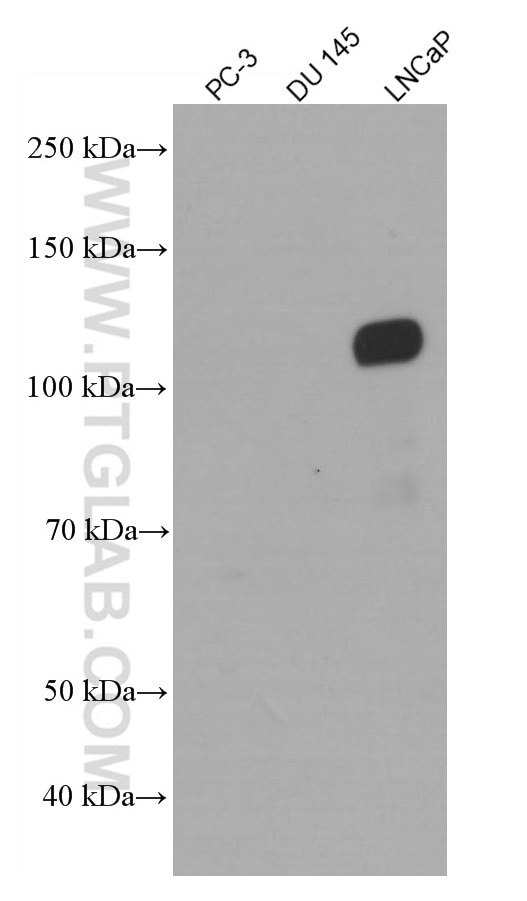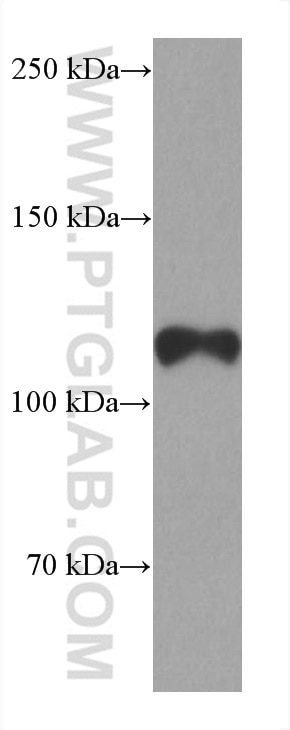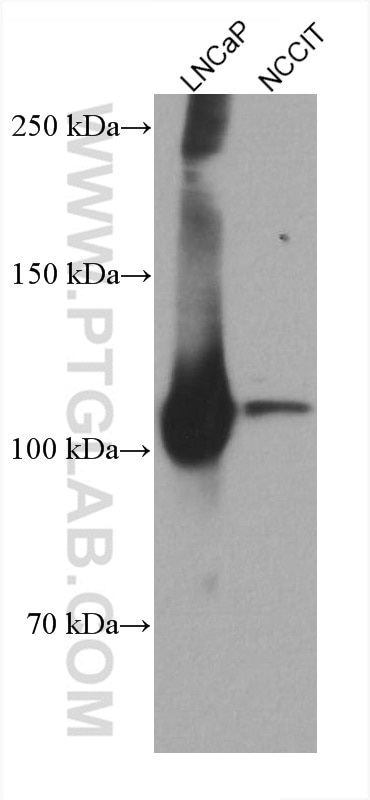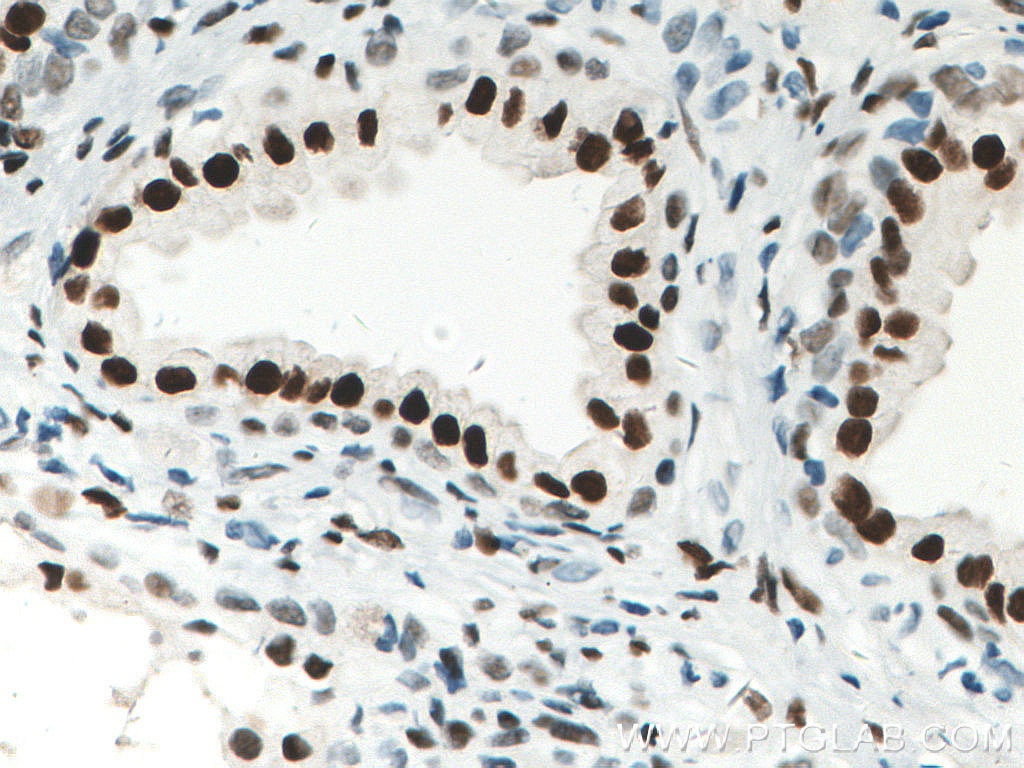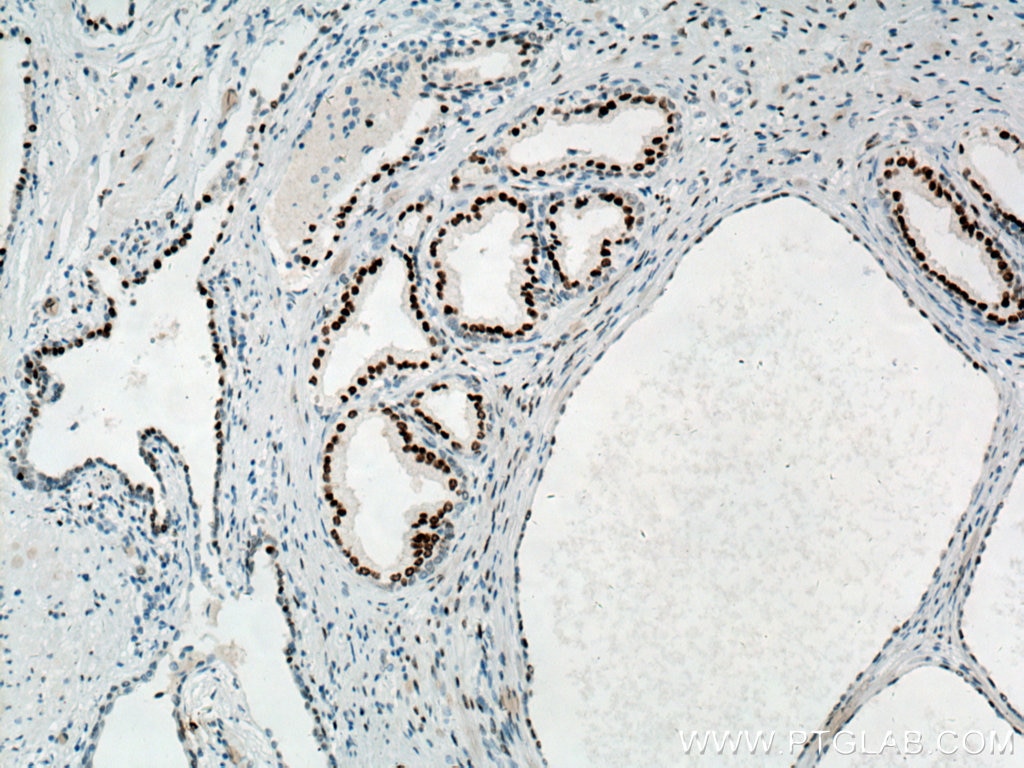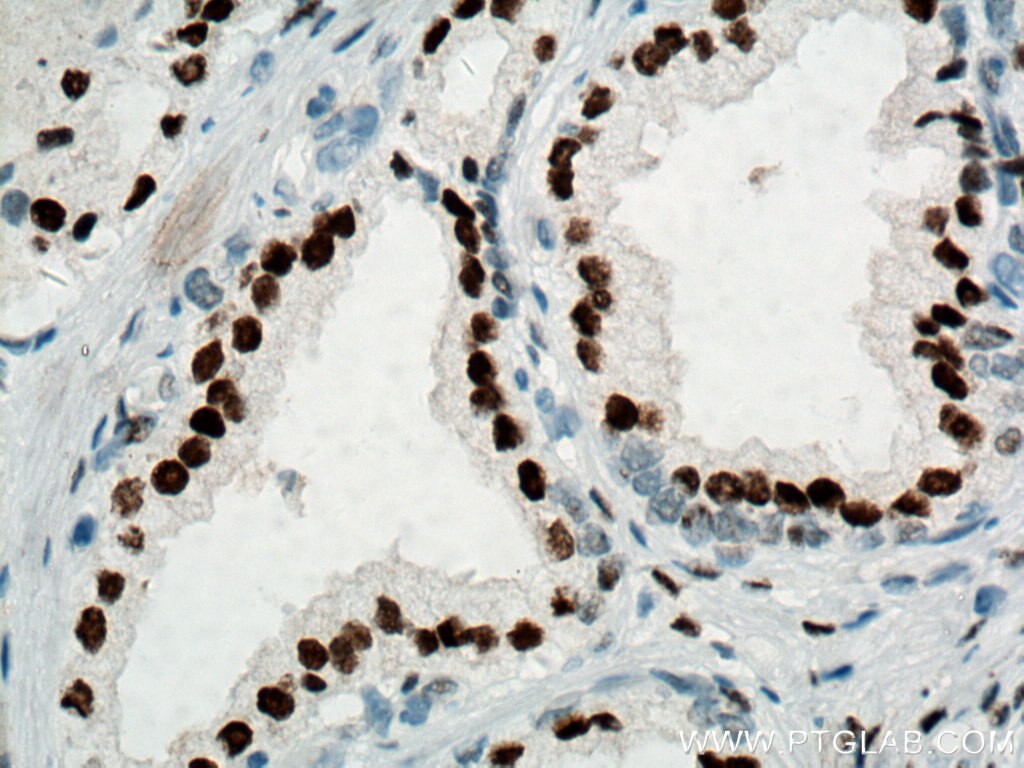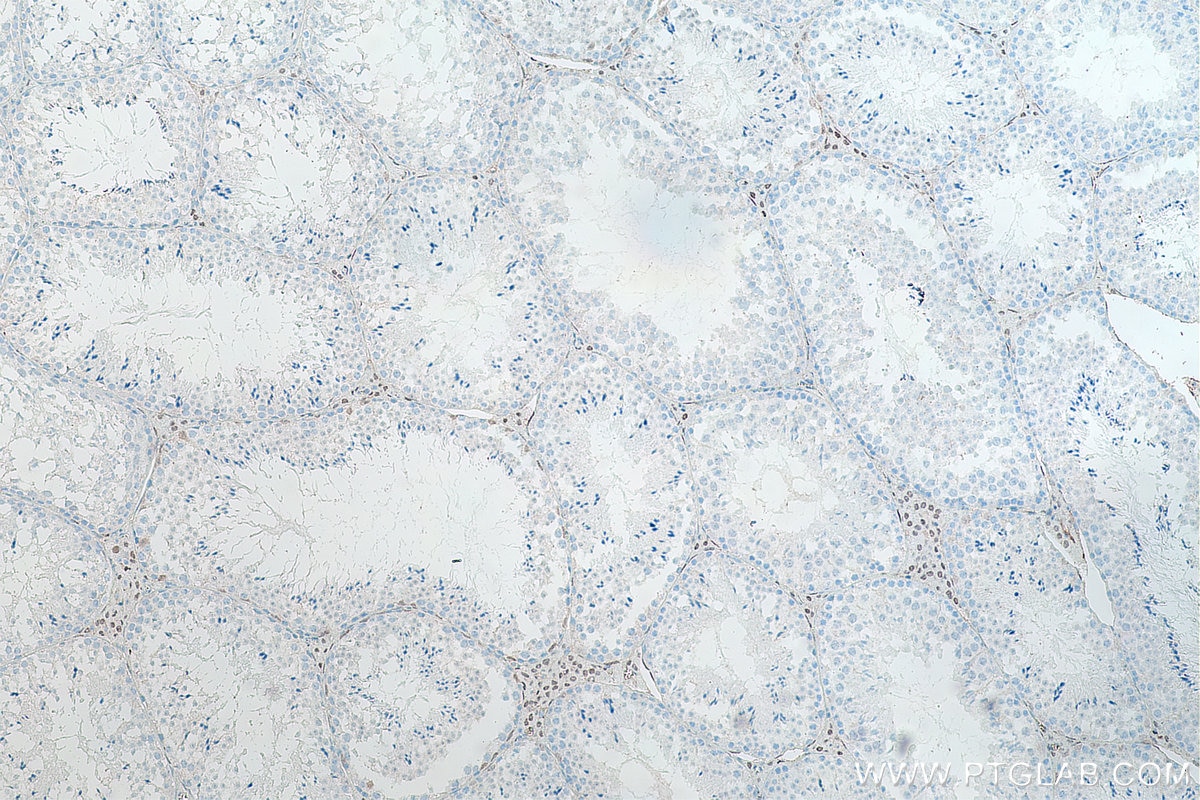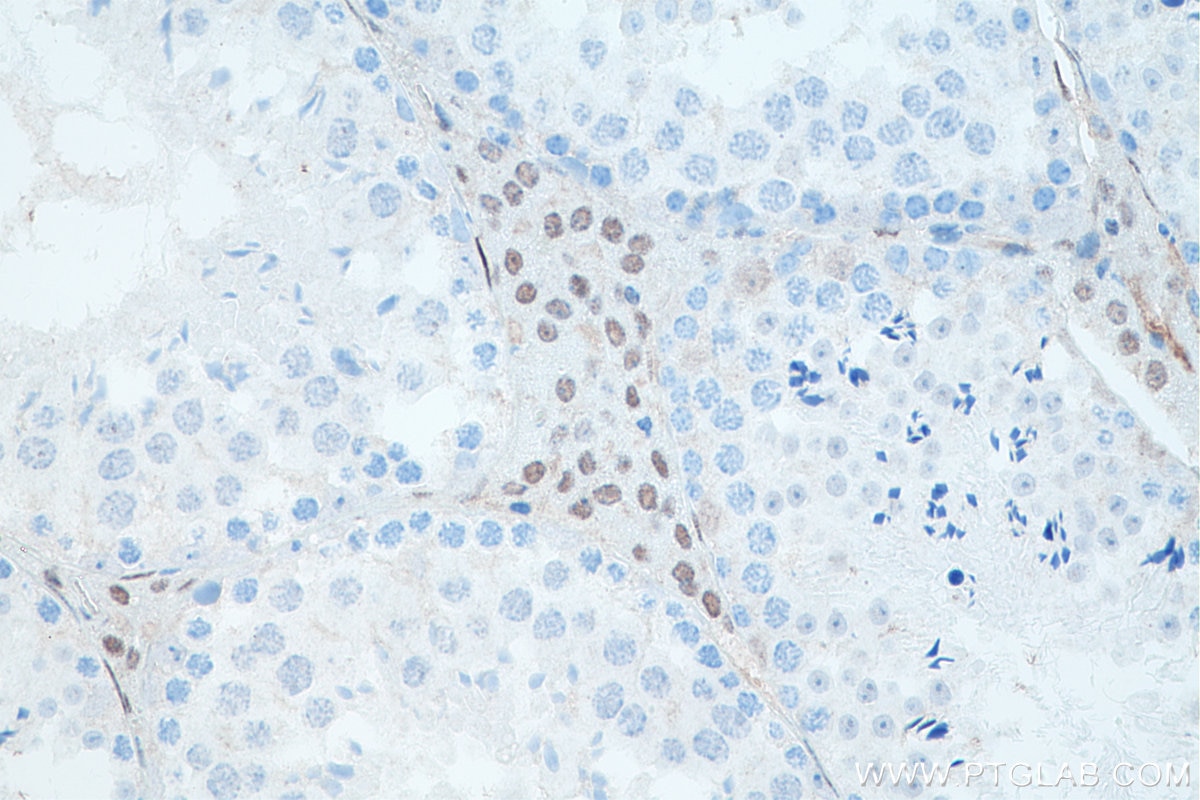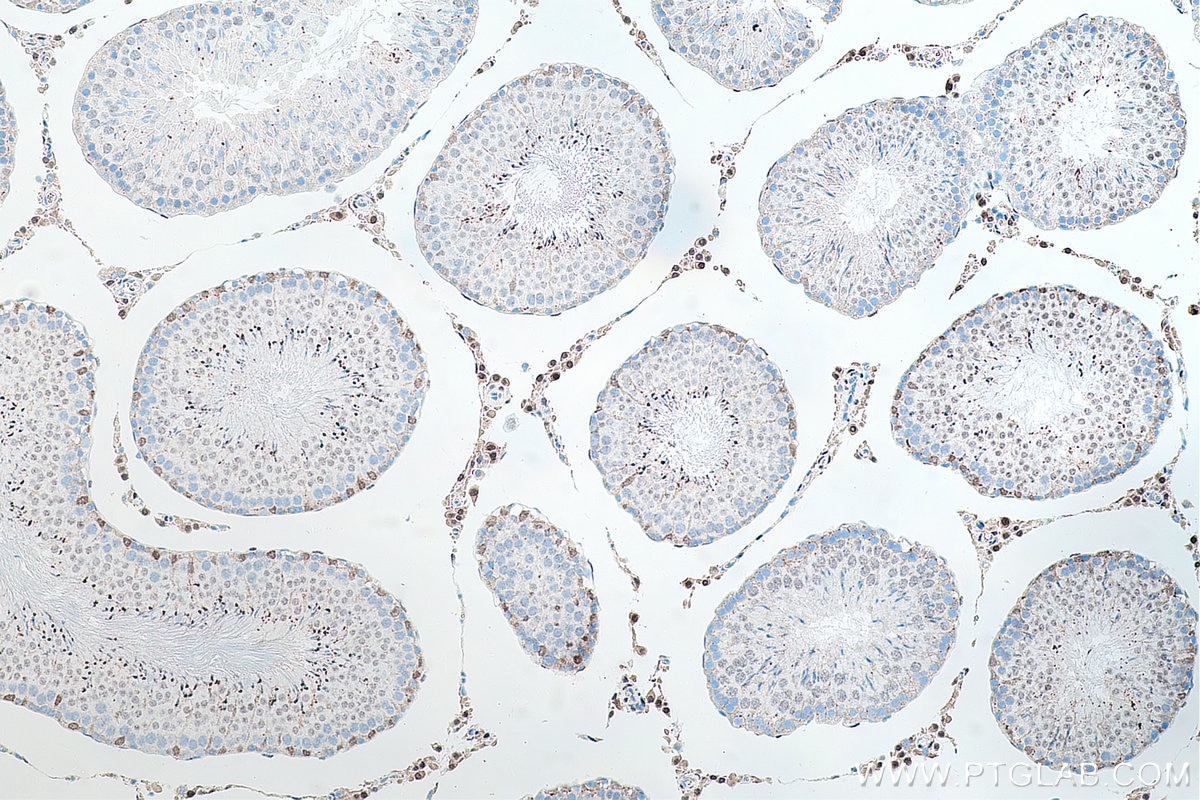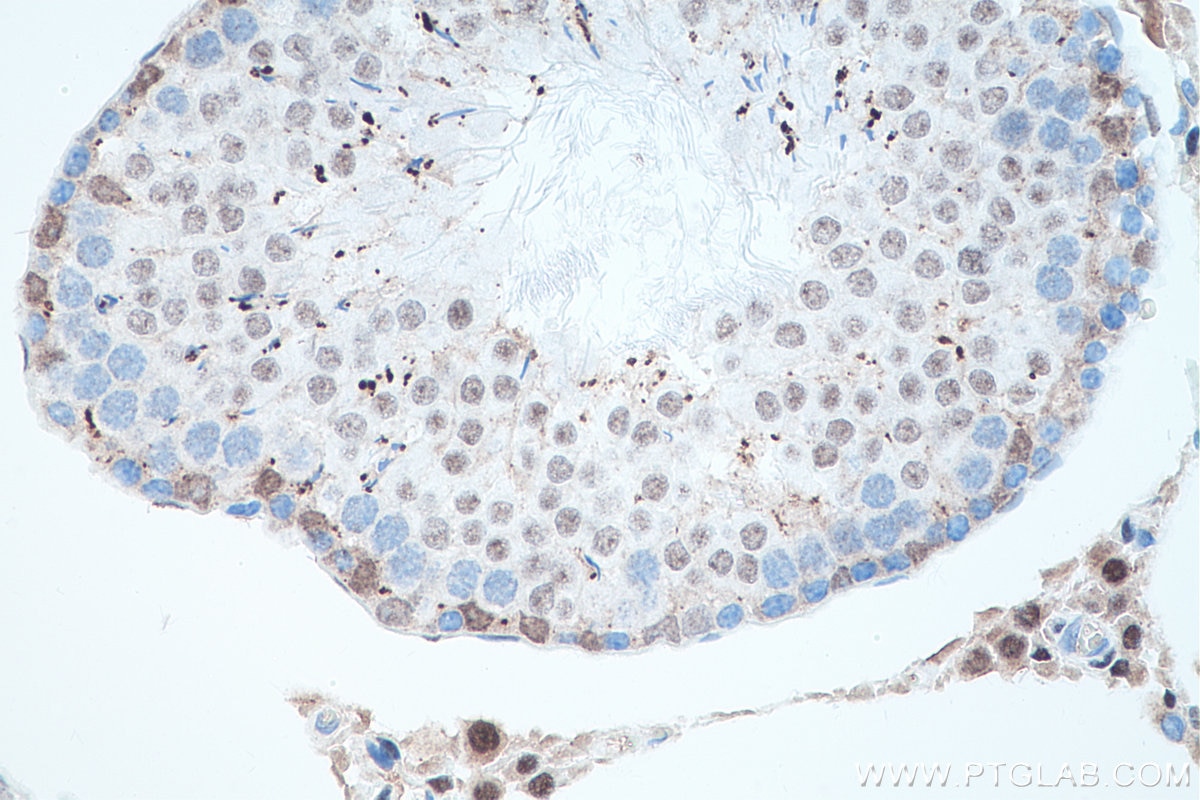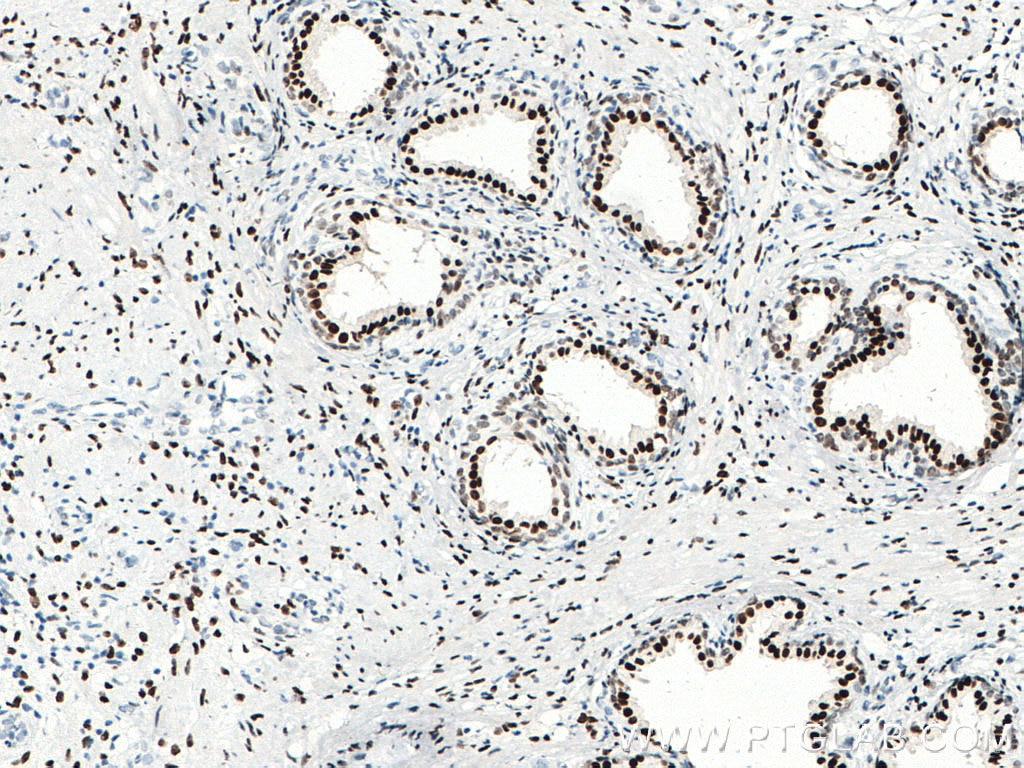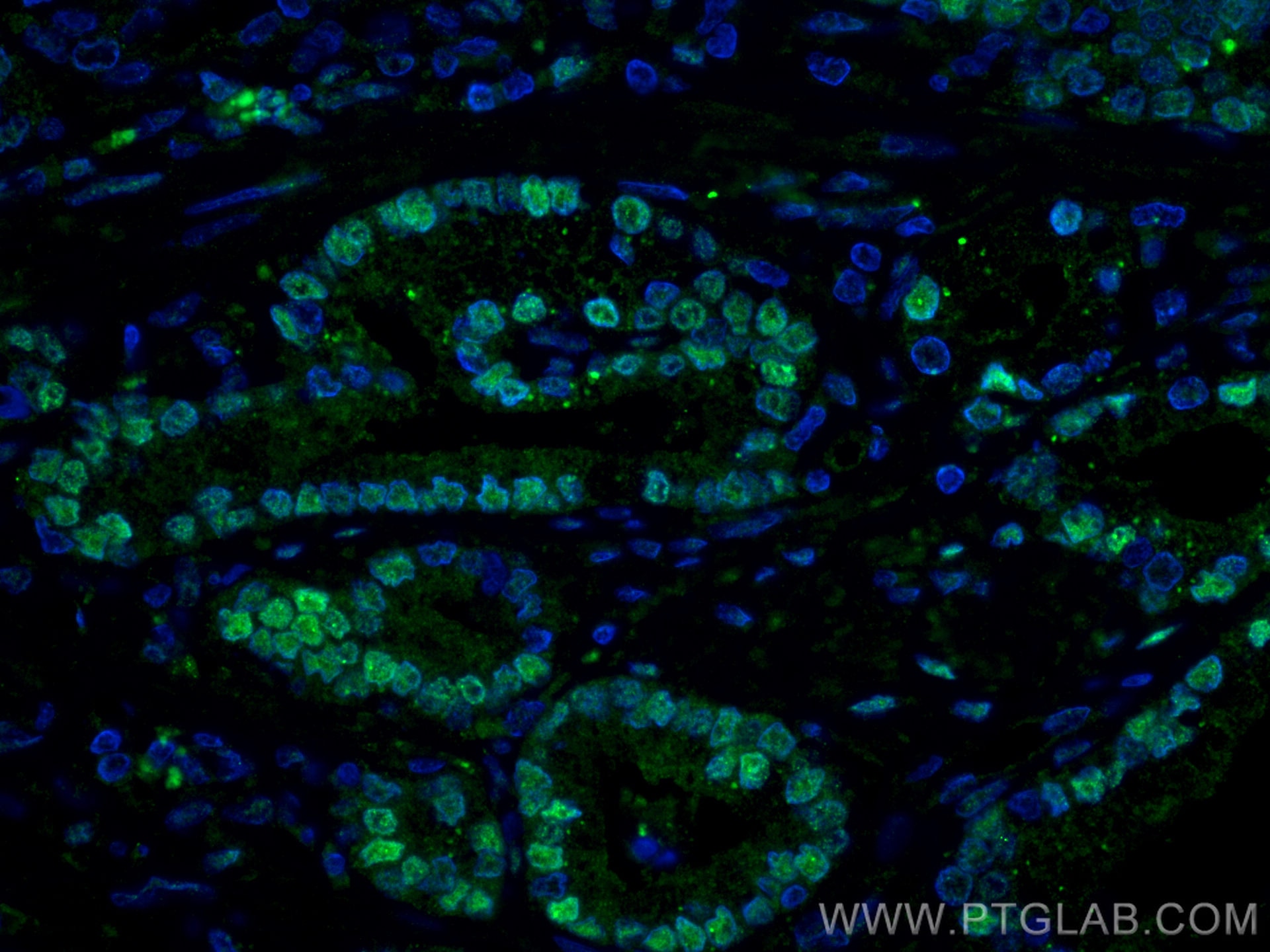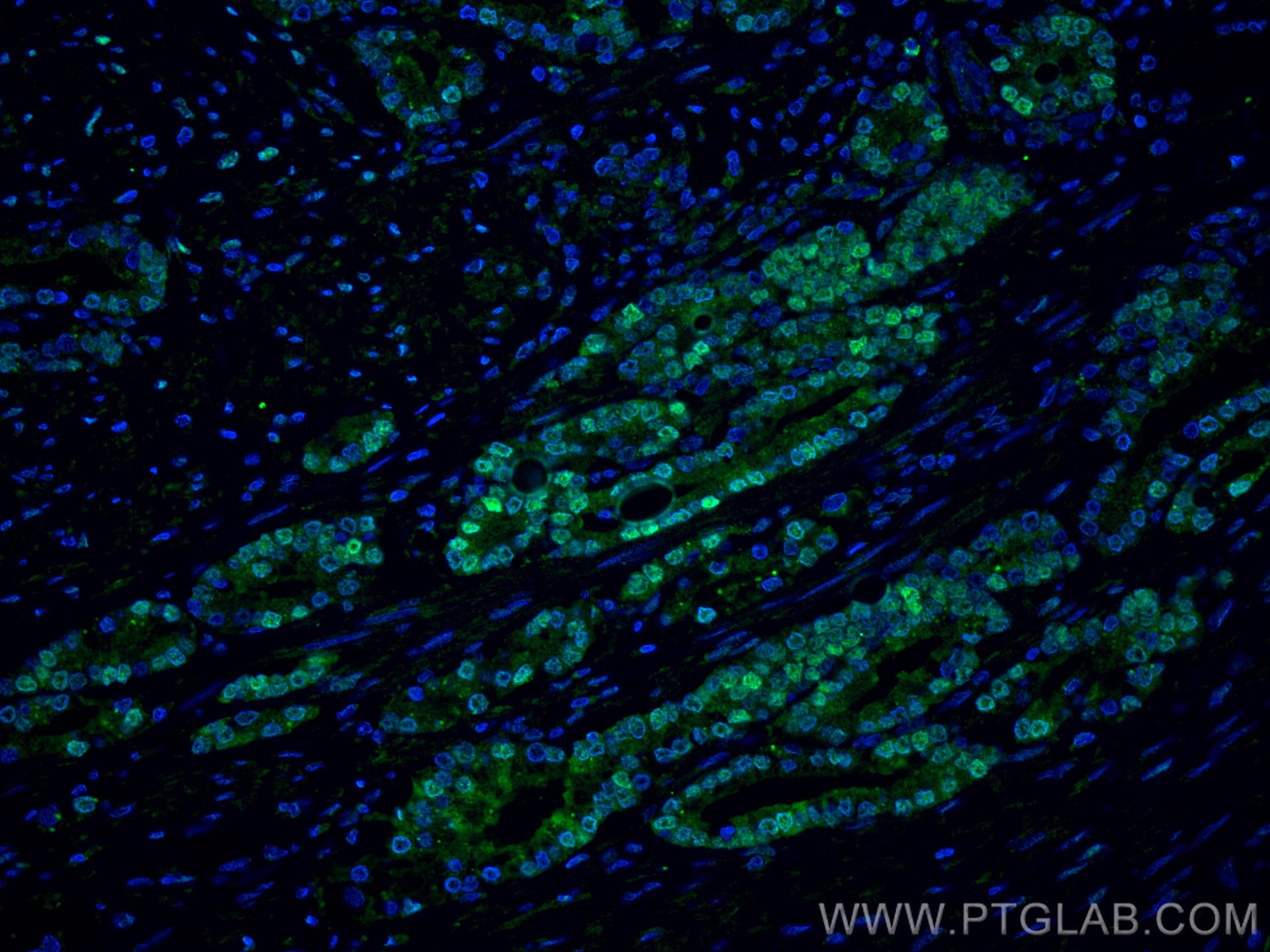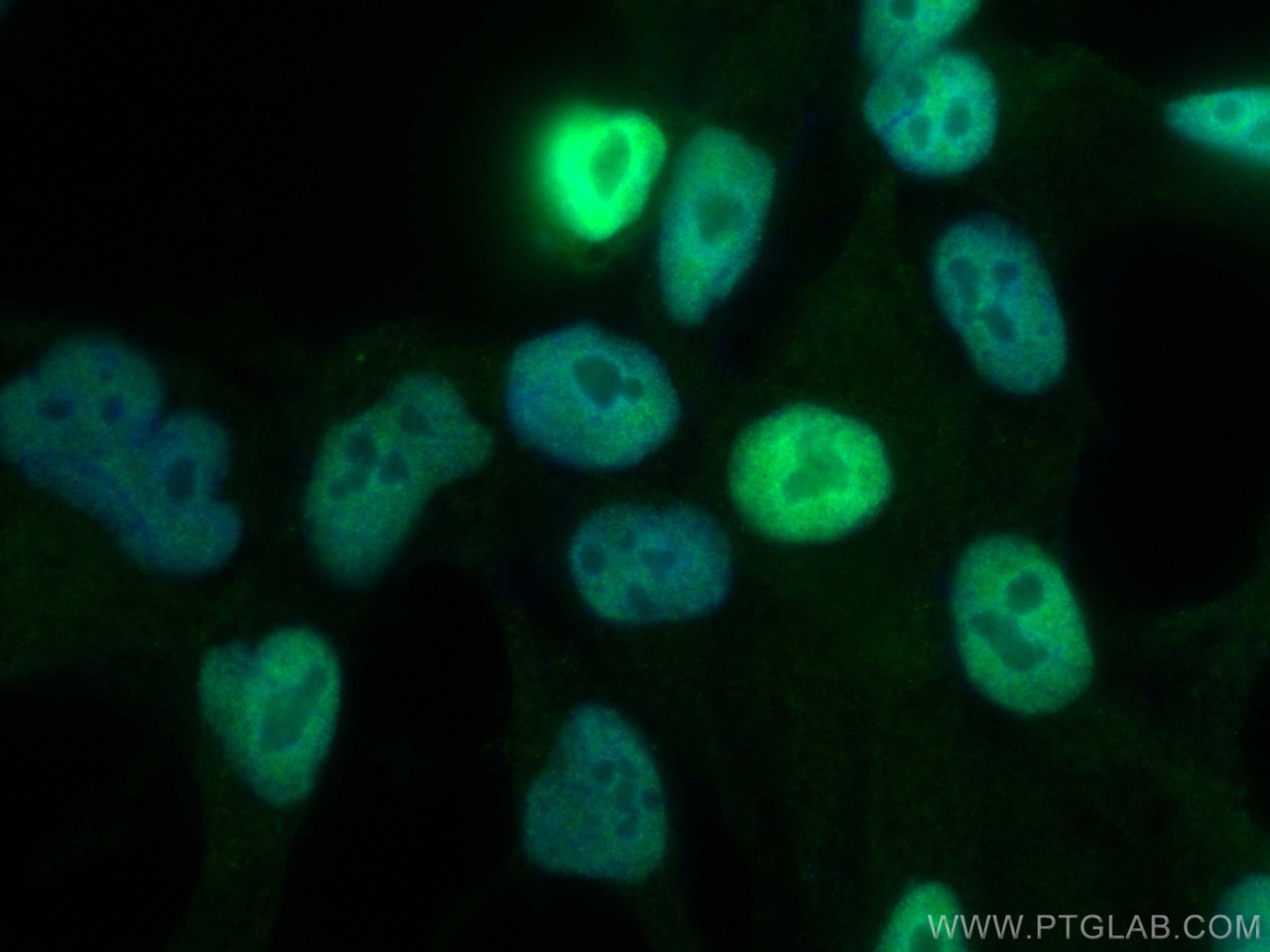androgen receptor Monoklonaler Antikörper
androgen receptor Monoklonal Antikörper für WB, IHC, IF/ICC, IF-P, Indirect ELISA
Wirt / Isotyp
Maus / IgG2a
Getestete Reaktivität
human, Maus, Ratte
Anwendung
WB, IHC, IF/ICC, IF-P, ChIP, Indirect ELISA
Konjugation
Unkonjugiert
CloneNo.
1F7C12
Kat-Nr. : 66747-1-PBS
Synonyme
Geprüfte Anwendungen
Veröffentlichte Anwendungen
| ChIP | See 1 publications below |
Produktinformation
66747-1-PBS bindet in WB, IHC, IF/ICC, IF-P, ChIP, Indirect ELISA androgen receptor und zeigt Reaktivität mit human, Maus, Ratten
| Getestete Reaktivität | human, Maus, Ratte |
| In Publikationen genannte Reaktivität | human |
| Wirt / Isotyp | Maus / IgG2a |
| Klonalität | Monoklonal |
| Typ | Antikörper |
| Immunogen | androgen receptor fusion protein Ag17291 |
| Vollständiger Name | androgen receptor |
| Berechnetes Molekulargewicht | 914 aa, 99 kDa |
| Beobachtetes Molekulargewicht | 110-120 kDa |
| GenBank-Zugangsnummer | BC132975 |
| Gene symbol | AR |
| Gene ID (NCBI) | 367 |
| Konjugation | Unkonjugiert |
| Form | Liquid |
| Reinigungsmethode | Protein-A-Reinigung |
| Lagerungspuffer | PBS only |
| Lagerungsbedingungen | Store at -80°C. 20ul Größen enthalten 0,1% BSA. |
Hintergrundinformationen
AR, also named as DHTR and NR3C4, belongs to the nuclear hormone receptor family and NR3 subfamily. AR is a ligand-activated transcription factors that regulate eukaryotic gene expression and affect cellular proliferation and differentiation in target tissues. Transcription factor activity is modulated by bound coactivator and corepressor proteins. AR is activated, but not phosphorylated, by HIPK3. Defects in AR are the cause of androgen insensitivity syndrome (AIS), previously known as testicular feminization syndrome (TFM), which is an X-linked recessive form of pseudohermaphroditism due end-organ resistance to androgen. Defects in AR are the cause of spinal and bulbar muscular atrophy X-linked type 1 (SMAX1) which also known as Kennedy disease. Defects in AR may play a role in metastatic prostate cancer. Defects in AR are the cause of androgen insensitivity syndrome partial (PAIS) which also known as Reifenstein syndrome. AR exists various isoforms with MW 110-120 kDa and 75-80 kDa. (PMID: 19244107 )
